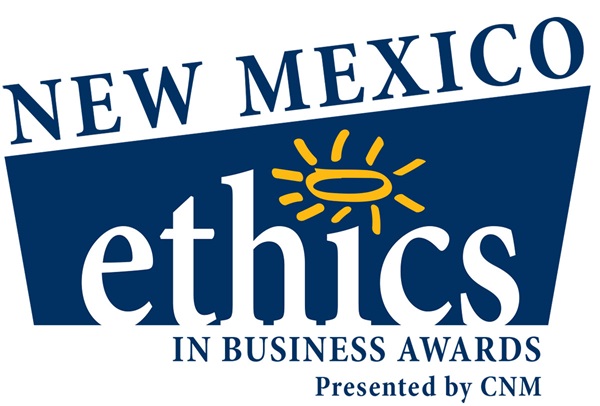
Course Series
Class or Series Name:
Ethical Challenges In Guardianship And Conservatorship: Skills For Improved Outcomes
Dates and Times: February 3, 2024, through March 23, 2024; Saturday mornings, 9 a.m. to noon.
**Any class canceled will be rescheduled before June 30, 2024.
Description: The Ethical Challenges In Guardianship And Conservatorship: Skills For Improved Outcomes presents more in-depth ethical practice skills training to those serving the growing number of vulnerable aging individuals and adults with disabilities. This course series weaves together skill building information and techniques involving communication, managing challenging situations, self-care, and other issues important to maintaining and improving an effective, ethical service provision to the various populations served under guardianship and conservatorship. Sessions will include scenarios and role plays to show application of NGA principles, various skills and provide opportunity for interactive discussion among instructors and attendees.
**Requirements: Registration is for all eight sessions of this Advanced Course. No textbook required. Handouts are given for individual sessions.
Please register using the button below if you are interested in attending. The New Mexico Office of Guardianship will review the registrations and approve those who are approved under the grant. You must list each participant separately.
If you’re interested in taking a class or the series, please contact us at ethics@cnm.edu.
Session 1: February 3, 2024 – Conflict Management (CM)
This session discusses conflict management, reaching resolution, and communication tools for interacting with clients, families, and other providers in challenging situations. Calming skills can be helpful in intense interactions with various populations, with families, professionals and others involved with protected persons. Please note, this is not a certification class for CM rather an opportunity to learn about the method and consider the use of its basic principles in your work.
Session 2: February 10, 2024 – Limited Vs. Full Guardianship/ Conservatorship
District Courts in this State expect court-appointed professionals to explicitly consider “Least Restrictive Means” for protecting an incapacitated person. This session will provide a basis for considering recommendations for Limited vs Full G/C that is based on consideration of underlying medical and behavioral health conditions that contribute to an individual’s incapacity, as well as the psychosocial context of family dynamics and susceptibility to undue influence that can complicate the extent of protection that is required.
*The session would include a didactic presentation of applicable legal/judicial principles, and medical conditions that should prompt consideration of limited vs full G/C. The session will encourage participants to offer examples of cases for discussion among course participants.
Session 3: February 17, 2024 – Responsibilities Of The Representative Payee; Navigating Online Forms; Conservatorship Issues
As Representative Payee for another person’s funds, ethical financial management expertise is needed, but also the ability to interact responsibly with sometimes challenging client behaviors, busy bureaucracies, and a tangle of forms and changing regulations. This session will strengthen skills in these areas, also applicable in many conservatorship scenarios.
Session 4: February 24, 2024 – Drug Court And Other Specialty Courts; APD Crisis Intervention (CIT) And Albuquerque Community Safety Department (ACS)
Problem-solving approaches initiated by the Second Judicial District Court through its programs and specialty courts, such as Drug Court and Mental Health Court, will be explored. These programs are designed to assist defendants suffering from substance abuse and mental health issues who frequently find themselves engaged in the criminal justice system.
Guardians of people with behavioral and intellectual diagnoses, homelessness and other disadvantages may find help from additional public programs during challenging episodes. The ABQ Police Department (APD) Crisis Intervention Team (CIT), and the Albuquerque Community Safety Department (ACS), among other programs, may offer supportive interactions needed for safe guidance through these situations.
Session 5: March 2, 2024 – QHCP Assessment Of Decisional Capacity And Susceptibility To Undue Influence
This session will provide detailed information about the role of the Qualified Health Care Professional in assessing and identifying 1) Medical or behavioral health conditions that contribute to loss of decisional capacity, 2) Current cognitive status, 3) Opinions about the AIP’s capacity to make decisions (financial, healthcare, independent living, and occasionally, testamentary capacity), and 4) Recommendations for least restrictive alternatives for promoting the AIP’s highest level of independent functioning, while ensuring protection and stability for the AIP. This session will also discuss complicating factors that are commonly associated with risk for susceptibility to undue influence and vulnerability to exploitation.
Session 6: March 9, 2024 – Sexuality And Spirituality: Responsibilities To Clients
Whether clients have ever been competent, they still have the right to be fully sexual. Past or current spiritual or religious beliefs and activities should represent their values. Guardians have the responsibility to protect clients from abuse and exploitation in both of these areas but must be aware of over-reach and paternalism.
Session 7: March 16, 2024 – Hospice Medical Issues And Their Implementation; Advance Directives; UHCDA
This session will discuss medical issues and considerations common to hospice care, and often to aging patients. Medical interventions such as nutrition and hydration, antibiotic use and pain management will be defined. End-of-life treatment considerations such as comfort care and hospice care will be discussed regarding clients’ wishes. Implementing clients’ wishes when they conflict with your values, or are considered illegal or unethical, will be considered. We will explain the differences between assisted dying, suicide, and passive euthanasia, and the legal status of end-of-life issues in NM.
Session 8: March 23, 2024 – Case Scenarios, Questions, Wrap Up
The Course Development Team will present case scenarios that involve various Advanced Course issues for attendees to review and discuss with an eye toward the most beneficial outcome for the client, bearing in mind the NGA ethics and standards. These will provide a chance for practical application of knowledge and skill areas presented in previous sessions. Questions from attendees regarding material from the previous seven sessions will be addressed. This will be a chance for sharing the wisdom and insight from the Team and the attendees.
